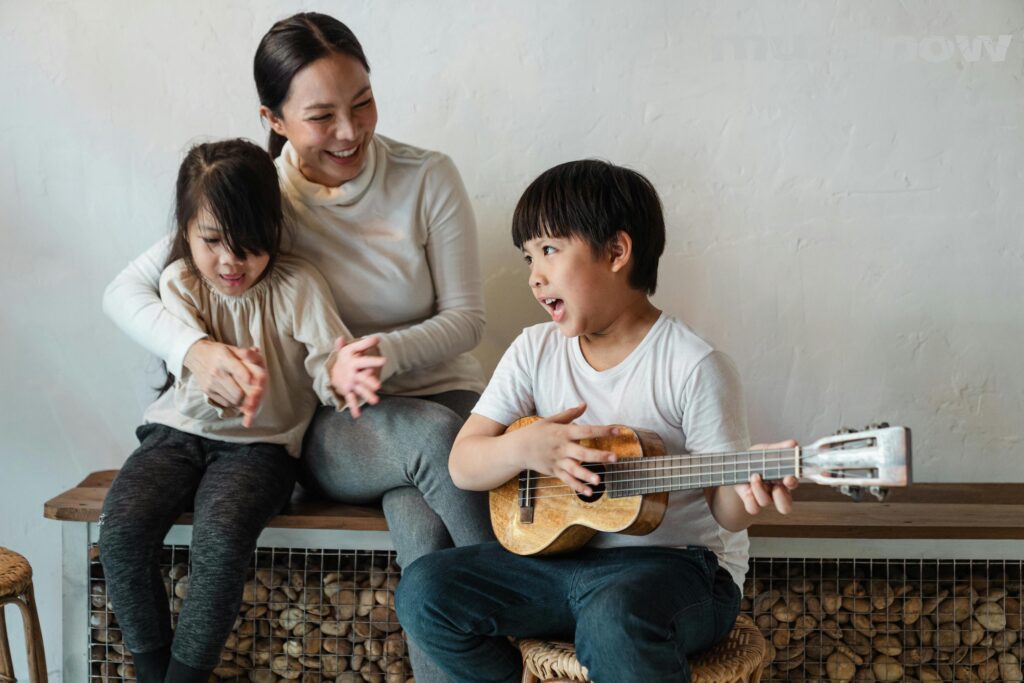Exploring the therapeutic effects of music unveils its significant benefits for children with Attention Deficit Hyperactivity Disorder (ADHD). This form of therapy transcends traditional methods, offering unique avenues for enhancing cognitive skills, emotional regulation, and social interactions. Music therapy stands out as a harmonious blend of enjoyment and therapeutic intervention, making it an invaluable tool for children with ADHD. Read on for some insights.
Creating a Musical Sanctuary at Home
Establishing a musical space within the home environment offers a dual benefit for children with ADHD and their families. This personal sanctuary allows children to immerse themselves in musical activities, providing a calm and structured setting for therapy. Simultaneously, this space becomes a haven for creativity and peace, enhancing the quality of the home environment. It also encourages regular practice, reinforcing the therapeutic benefits of music. Furthermore, this dedicated space symbolizes a family’s commitment to supporting their child’s emotional and cognitive development.
Soothing Tunes for Enhanced Calm and Rest
Music is a great way to spend quality time with your kids. Integrating calming melodies into their daily routines, especially at bedtime, helps soothe their often overactive minds. The selection of specific musical genres tailored to the child’s preferences further enhances the effectiveness of this approach. In addition, this routine can become a comforting ritual, signifying a time for winding down and preparing for rest. Music therapy can even be an effective tool for promoting relaxation in children with ADHD.
Enhancing Concentration Through Rhythm
Music therapy plays a pivotal role in improving concentration among children with ADHD. The structured nature of music, with its rhythmic patterns and sequences, serves as a cognitive anchor, helping these children to focus and maintain attention on tasks. This rhythmic engagement not only captures their interest but, as Healthline notes, also trains their brains to sustain attention, a key challenge in ADHD. Moreover, the repetitive elements in music provide a soothing backdrop, reducing hyperactivity and promoting a more focused mindset. This approach transforms challenging tasks into engaging activities, fostering a positive learning environment.
Fostering Socialization Through Group Music
Participation in group music activities is a fantastic way for children with ADHD to improve their social skills. These collaborative sessions offer a non-threatening and enjoyable context for interaction, where children learn to communicate, cooperate, and build relationships with their peers. Such activities prove crucial in developing social aptitude and confidence, essential skills for children with ADHD. Engaging in these group activities also helps children understand the value of teamwork and empathy. Additionally, it allows them to experience the joy of shared achievements and mutual support in a group setting.
Expressing Emotions Through Melody
Music therapy provides a powerful outlet for emotional expression, particularly beneficial for children with ADHD who may struggle with verbal communication. Through music, Beyond Music Therapy points out that they can articulate their feelings and experiences, channeling their emotions into a creative and constructive form. This expression not only aids in emotional regulation but also fosters a deeper understanding of their inner world. The act of creating music offers a sense of accomplishment and pride, boosting their self-esteem. Furthermore, engaging with music as a form of expression allows these children to explore and identify different emotions, enhancing their emotional literacy.
The journey of music therapy for children with ADHD transcends conventional boundaries, offering a symphony of benefits that resonate beyond mere symptom management. It is an artistic bridge to a world where structure meets creativity, serenity intertwines with joy, and challenges transform into opportunities for growth. This therapeutic approach does not just address the symptoms; it nurtures the whole child, fostering an environment where they can thrive in harmony with their unique rhythms and melodies. As we embrace this melodious path, we witness the unfolding of a more vibrant, balanced, and fulfilling future for these children, echoing the profound impact of music on their lives.
Photo by Ketut Subiyanto via Pexels
Discover more from Stan Stewart - @muz4now
Subscribe to get the latest posts sent to your email.


The importance of music cannot be emphasized enough. I don’t have much experience with music for and with children, but what I have experienced has left a deep impression on me. In our region, it used to be the norm for children to learn a musical instrument. It makes me sad to see that short-lived substitutes (like tik-tok) are on the rise. It would be interesting to know how this trend affects ADHA in children.
That would be interesting. And if our suspicions are true, also sad.
Music for good is something I’ve believed in as long as I can remember.
ADHD- of course, sorry! I still learn so much from music – and most of all enjoy it ☀️
Stan, your post beautifully captures the transformative power of music therapy for children with ADHD.
I love how you emphasize the balance between structure and creativity, and how music provides both cognitive benefits and emotional expression. Your suggestion of creating a musical sanctuary at home is such a meaningful way for families to foster both therapeutic growth and connection. It’s inspiring to see how music can not only enhance focus and calm but also promote social skills and emotional well-being. Thanks for sharing these insights—truly a harmonious path to helping children thrive!
Cheers, Mike
Mike,
Yours is such a beautiful response to this post.
Thank you,
Stan